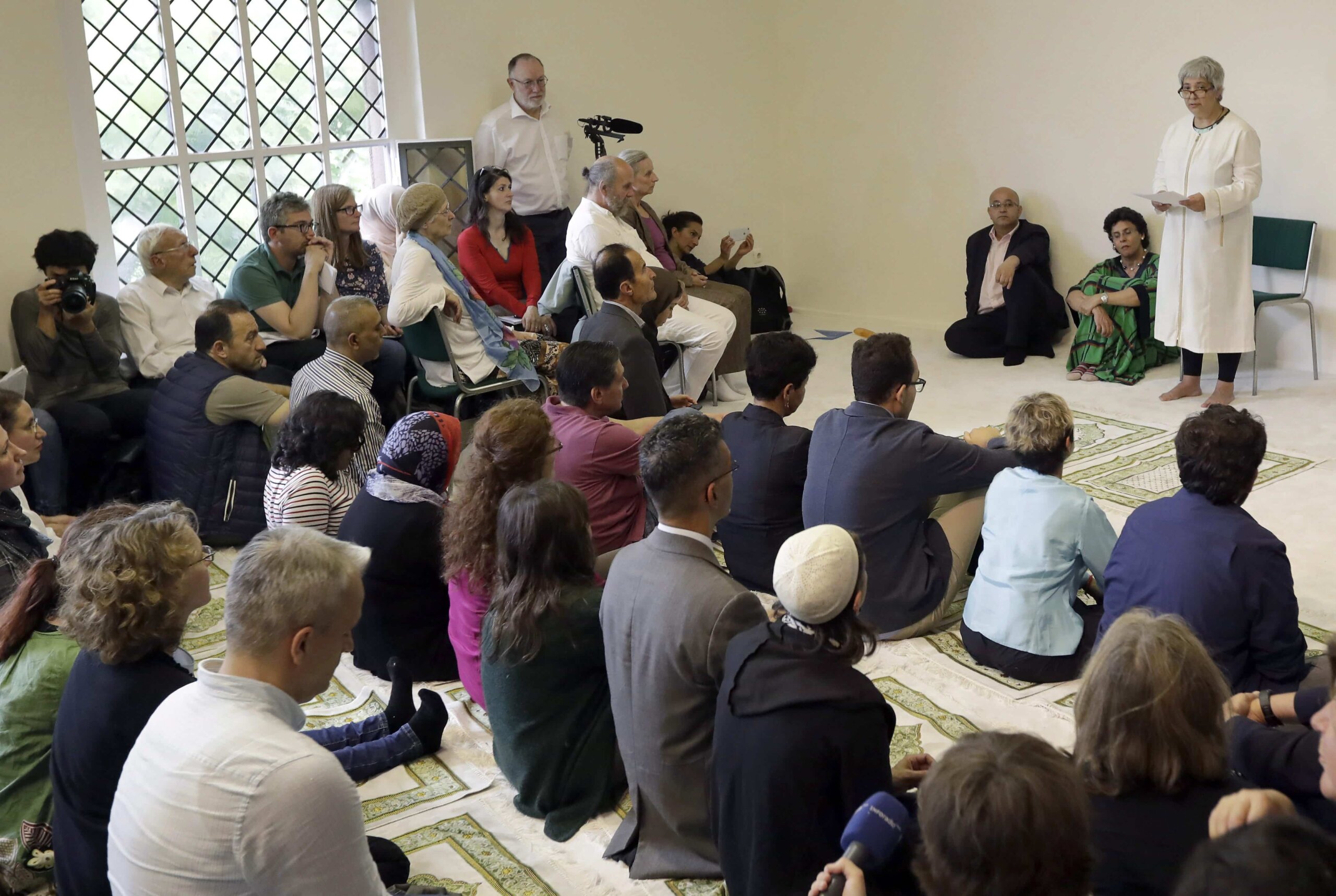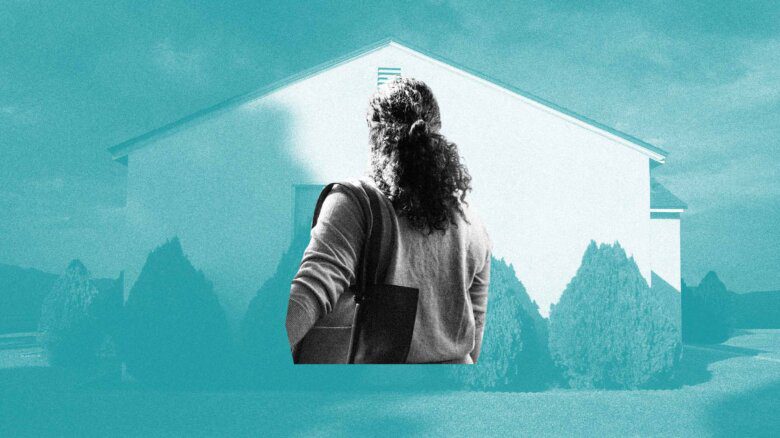A Berlin mosque says it’s the first in Germany to fly a Pride flag, but hoisting the rainbow symbol has sparked some controversy.
Located in Berlin’s eastern district of Moabit, the Ibn Rushd-Goethe Mosque unfurled a rainbow flag outside its walls on July 1 to a crowd of people who wore stickers reading “love is halal.” (“Halal” refers to the Arabic term for “permissible,” defined in Islamic legal contexts as acts allowed by the Quran.) Ibn Rushd-Goethe bills itself as Germany’s only self-described liberal mosque.
The mosque’s flag will remain on display through the end of July, as Berlin’s Pride Month gets underway. Two of the city’s major Pride events are set to take place later in the month: the Lesbian and Gay Festival will be held on July 16 and 17, while Christopher Street Day (CSD) is scheduled for July 23.
“In Islam, there is a solid basis for respect and acceptance of diversity—including sexual diversity.”
One of the mosque’s six imams, Mo el-Ketab, told the German broadcaster Deutsche Welle that the space serves as a “safe place for people who are different, so they, too, can experience the spiritual side of their lives.”
“I hope that many other mosques will also show the flag in this way or set other positive signs for the LGBT community,” he said.
Several notable political leaders attended the Pride flag’s unveiling, including Berlin’s senator for culture and Europe, Klaus Lederer, and parliamentary lawmaker Kai Wegner. Marc Eric-Lehmann, who serves as a board member for the annual CSD festival, was also present at the event and said the display was an “incredibly strong sign” for LGBTQ+ rights in Germany.
“Queer people can also be religious and believe in God,” he said in comments quoted by Danish news site The Local. “We should not just be talking about safe spaces in bars and clubs in Berlin. We also have to talk about safe spaces in the places of worship.”
But the mosque’s decision to display a rainbow flag has led to mixed reactions on social media, where some denounced the decision. One Facebook commenter claimed the mosque does not represent Islamic thinking and is misleading the public, while another commenter accused the congregation of distorting the religion’s values. Others said the Pride flag’s unveiling amounted to declaring war on Islam.
Despite criticism, the milestone reflects the work of groups like Muslims for Progressive Values (MPV) advocating that homosexuality is not “haram” (a word akin to “sinful” in Arabic) and that there is room for LGBTQ+ Muslims in the religion.
The group—which has chapters in Canada, Australia and the United States, in addition to several other countries—directly addresses the topic of sexuality in Islam on its website. “The conclusion that homosexuality is ‘unnatural’ is not based on anything in the Qur’an,” the webpage claims. “Again, the word ‘homosexuality’ is never even used and does not exist in the Qur’an.”
“In Islam, there is a solid basis for respect and acceptance of diversity—including sexual diversity,” MPV adds elsewhere on its site.
Arguably, the Ibn Rushd-Goethe Mosque itself is representative of the changes for which progressive Muslims are pushing within the religion. The congregation was founded by Turkish-German lawyer, writer and rights activist Seyran Ateş, who is also Germany’s first-ever female imam. Ateş and the Ibn Rushd-Goethe Mosque were the subjects of the 2021 documentary Seyran Ateş: Sex, Revolution and Islam, directed by Turkish-Norwegian filmmaker Nefise Özkal Lorentzen.
In comments to Deutsche Welle, Ateş said that flying a Pride flag shows LGBTQ+ Muslims “they do not have to choose between their faith and their sexual identity, but are accepted as such, as they are.”
The Pride flag’s unveiling arrives during an uneasy political moment not just for Muslims, but for Germany as a whole. Several LGBTQ+ events have witnessed acts of violence during Pride Month—including an attack on a Pride parade south of Frankfurt, in which 30 men reportedly hurled homophobic insults at attendees and lit a Pride flag on fire.
Hate crimes are reportedly increasing across Germany, with a 36 percent increase in anti-LGBTQ+ violence in 2020.
LGBTQ+ people and their allies are still continuing to advance equality in Germany in the face of these challenges. German chancellor Olaf Scholz and his coalition parties announced sweeping reforms in November 2021 that include making it easier for trans people to correct their legal gender and requiring that health insurers fully cover transition-related medical care.


 Why you can trust Xtra
Why you can trust Xtra


